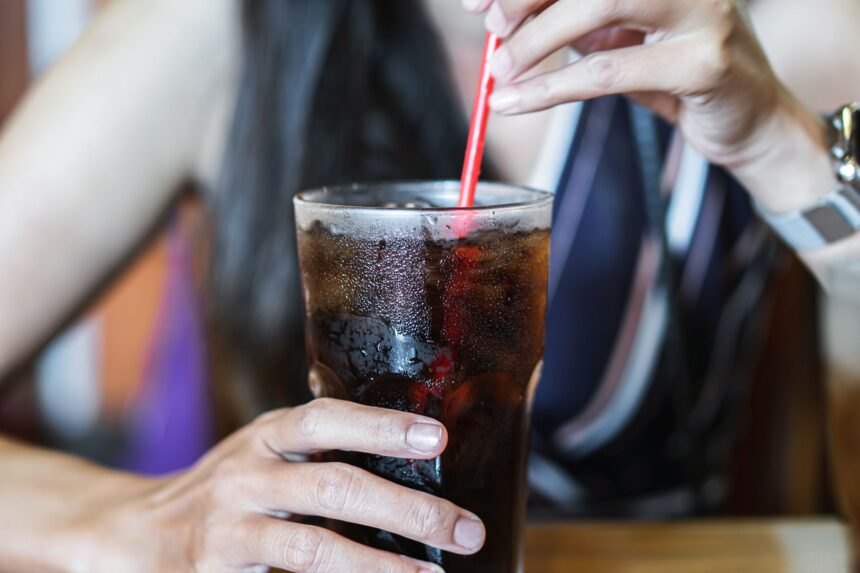Recent research highlights alarming links between soft drink consumption and the risk of nonalcoholic fatty liver disease (NAFLD), a potentially severe liver condition. According to a new, yet-to-be-published study, indulging in just one can of diet soda each day may elevate the risk of developing NAFLD by 60%. Similarly, those who consume sugary drinks might face a 50% increase in risk.
NAFLD is characterized by excessive fat accumulated in the liver of individuals who consume minimal or no alcohol. This liver damage can mirror the effects of chronic alcohol use, potentially leading to serious health complications such as cirrhosis and liver cancer. Also referred to as metabolic dysfunction-associated steatotic liver disease (MASLD), NAFLD is increasingly recognized as a major contributor to liver cancer, with estimates showing a 50% rise in occurrences in the United States over the past thirty years. Currently, it is believed that approximately 38% of the U.S. population is affected by this condition.
Lihe Liu, the lead author of the study and a graduate student at the First Affiliated Hospital of Soochow University in Suzhou, China, noted that sugar-sweetened beverages have faced significant scrutiny over the years. Liu remarked, “Sugar sweetened beverages (SSBs) have long been under scrutiny, while their ‘diet’ alternatives are often seen as the healthier choice. Our study shows that LNSSBs (low- or non-sugar-sweetened beverages) were actually linked to a higher risk of MASLD, even at modest intake levels such as a single can per day.”
The study also indicated a correlation between diet beverage consumption and an increased risk of mortality due to liver disease. These findings were shared at the United European Gastroenterology Week in Berlin, an annual gathering organized by the European Society of Gastrointestinal Endoscopy. Liu commented, “These findings challenge the common perception that these drinks are harmless and highlight the need to reconsider their role in diet and liver health, especially as MASLD emerges as a global health concern.”
To reach these conclusions, the study monitored nearly 124,000 participants without pre-existing liver conditions as part of the UK Biobank, a significant biomedical research initiative tracking health trends in the United Kingdom. The participants reported their beverage intake through 24-hour dietary questionnaires at various intervals over the decade-long study.
In looking at the relationship between soft drink consumption and NAFLD, the researchers found that individuals who replaced sugary beverages with water could lower their risk of developing fatty liver disease by nearly 13%, and those who substituted diet beverages saw a reduction of over 15%. Conversely, switching between sugary drinks and their diet counterparts did not significantly change risk levels.
Sajid Jalil, a clinical associate professor of gastroenterology and hepatology at Stanford University School of Medicine, emphasized the importance of these findings, stating, “The study showed that both regular and diet soft drinks may harm the liver over time, while choosing water or unsweetened drinks could help protect it. For me, this study has a lot more weight than previous studies because of its prospective design, involving a large number of subjects, validated tests for the diagnosis of MASLD, and a long follow-up period.”
The study raises an important question about why both diet and sugary drinks have detrimental effects on liver health. Liu explained that the high sugar content in sugary beverages can lead to quick increases in blood glucose and insulin, which may contribute to weight gain and promote fat storage in the liver. Even though diet drinks contain fewer calories, they may also adversely impact liver function through various mechanisms.
According to Liu, “They can change the gut microbiome, interfere with feelings of fullness, increase preference for sweet foods, and even stimulate insulin secretion. Water, however, hydrates the body without affecting metabolism, helps with satiety, and supports overall metabolic function. That’s why the risk reduction is similar no matter which sweetened drink is replaced — it shows that water is the healthiest default beverage.”






